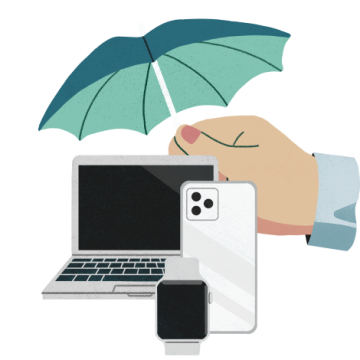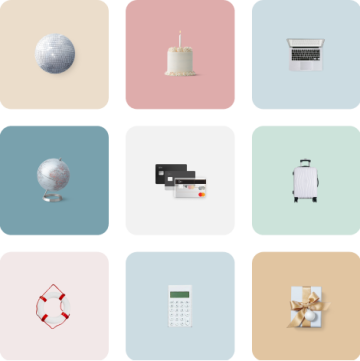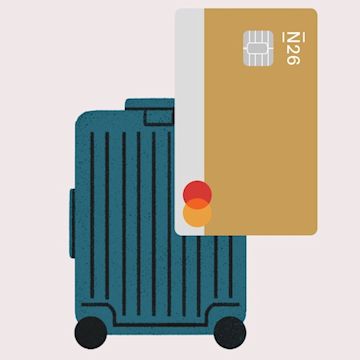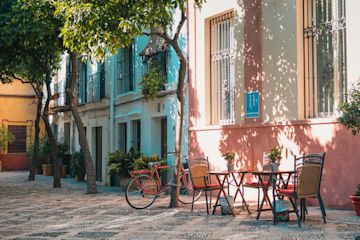
Understanding duty free shopping and its benefits while traveling
Not all duty-free goods were created equal! Here’s what to buy and what to avoid to save some cash the next time you’re in the airport.
7 min read
- Duty-free means “without tax.” Stores that sell duty-free products are located in airports or other travel hubs.
- Certain goods — such as alcohol, tobacco, perfume, and cosmetics — are often cheaper in duty-free shops, because these stores don’t have to charge value-added tax (VAT) or other consumer tax.
- It's important to compare prices before you buy anything duty-free, as some items may still be cheaper elsewhere.
An essential part of any trip to the airport is a dash through duty-free. Garish whiskey displays, oversized chocolate bars, and exotic perfumes all compete for your attention, claiming to offer luxury goods at bargain prices. With Dubai Airport’s duty-free generating more than $2 billion in sales each year, and Paris’ Orly and Roissy Charles-de-Gaulle airports averaging €34 in duty-free expenses per customer, many travelers are cashing-in. But does duty-free actually save you money? Let’s look at the facts and debunk some of the myths surrounding this ubiquitous airport landmark so you can spot a deal next time you’re heading abroad
What are duty-free shops?
What is VAT?
The history of duty-free
Does duty-free actually save you money?
Types of duty-free shops
What are the downsides of duty-free?
- Duty-free purchases inside the EU are only possible if you’re coming from or going to a non-EU country. In 1999, the EU also got rid of special exemption status in the international zones among its member countries. Places like Andorra, the Canary Islands, and the UK are special exceptions because they’re not part of the EU Customs Union.
- Certain duty-free items are banned from specific countries. For example, it’s illegal to bring Spanish Serrano ham or French soft cheese into the United States. Be sure to check the customs laws in the country you’re traveling to before buying anything from duty-free.
- Each country also has a different limit on the amount of duty-free produce you can bring in. In Germany, for example, you can bring up to 200 cigarettes and four liters of non-sparkling wine. Whereas in Switzerland, you can bring in five liters of alcohol below 18% and 250 cigarettes, and in Spain, you can bring in 2 liters of wine duty-free. If you exceed these thresholds, you’ll have to pay tax on all your purchases.
What to buy and what to avoid in duty-free shops
- Spirits can be up to 25–30% cheaper in supermarkets than in duty-free stores.
- Sweets such as Toblerone and Ferrero Rocher are on average 40% cheaper in supermarkets.
- Burberry perfume (90 ml) costs on average €98 in duty-free and €115 in French retailers.
- Surprisingly, duty-free prices are higher on average than prices in French supermarkets. Skyscanner attributes this to the geographical location of the duty-free shop, exchange rate variations, and the fact that each store is free to set its own prices.
More tips for shopping duty-free
- Research before you go. Always check the customs rules of your destination to understand what and how much you can bring with you.
- Compare prices. Not all duty-free items are actually a bargain. Check prices beforehand so you know what’s a good deal and what isn’t.
- Consider baggage costs. If your airline charges for checked bags, factor in this cost when deciding whether to buy duty-free.
- Pack smart. Remember the liquid restrictions for carry-ons, especially if you’re hitting the duty-free store on your outbound flight — you’ll be carrying those items around for the rest of your trip. Pack any fragile duty-free items as securely as you can, and consider keeping them with you in your carry-on luggage if you have space.
- Keep your receipts. Save all your receipts! You might need to present them at customs or if you want to make a return.
Final considerations
- Check the regular store price online before buying anything in a duty-free shop.
- Don’t go over the authorized limits. If you do, all of your goods may be confiscated and you’ll have to pay a fine in your destination country.
- Keep an eye on the exchange rate, this will influence how much of a bargain an item really is!
Protect what you love
Get peace of mind for your smartphone with N26 Metal.
Explore insurances at N26 Metal
Explore the world with N26
With N26, the world is your oyster — and you’re in the driver’s seat when it comes to your finances. The N26 You travel card lets you enjoy your vacations, with an account that makes managing your money easy wherever you go.
Whether you’re traveling for pleasure, work, or studies, N26 is designed for modern travelers. Not only do you benefit from the best rates on international transfers, you’ll also get free card payments worldwide. And in addition to saving with your travel card, it comes with travel insurance, so you can have complete peace of mind even when you’re far from home.
N26 makes it easier to manage your finances while you’re traveling — discover how.
Save up with Spaces
Use N26 Spaces sub-accounts to easily organize your money and save up for your goals.
Discover sub-accounts
FAQs
Duty free is a tax-free store. It sells expensive products at a lower price, because there isn’t any import tax. You can buy items such as perfumes, cosmetics, luxury goods, electronics, souvenirs, alcohol, and tobacco.
You don’t pay tax in a duty-free store because it’s located after the airport border controls, so it’s in international territory.
It’s usually worth buying items such as perfumes, cosmetics, tobacco, alcohol, electronics, and luxury goods or other similar things at the duty-free store.
The Tax Free initiative in Spain means that purchases over €90.15 are exempt from tax. Remember that you’re only eligible for this exemption if you live outside of the European Union.
Products bought in the duty-free store are tax-free up to a limit of €430 per person.
The main benefit of buying duty free is that you can save money on items that are normally more expensive, especially tobacco and higher-strength alcoholic drinks.
On the other hand, duty-free discounts can encourage impulse buys that will affect the weight and volume of your luggage — and you might risk overspending.
Yes, alcoholic drinks and tobacco are cheaper in a duty-free store because they’re not taxed.
Yes, some airports allow you to pre-order duty-free items online for airport pickup. Availability varies by airport, and there are often deadlines for pre-orders. Payment methods may differ, and you'll have to follow specific procedures for collecting your items at the airport.
Breaking the seal on duty-free items before reaching your destination can mean that they’re now subject to import duties and taxes. To avoid this, pack duty-free liquids in your checked luggage and ask about alternative packaging that maintains the original seal.
No, you can’t claim a VAT refund on duty-free purchases, because there’s no VAT charged on these items. Check with the customs authority in your destination country if you have questions about any potential exceptions.
Find similar stories
BY N26Love your bank
Related Post
These might also interest youTRAVELWhy winter is the best season for budget travelFrom cheaper flights to luxury bargains, here’s why winter is the ultimate time to travel without breaking the bank.
4 min read
TRAVELTravel Expenses - Your guide to track them for a worry-free vacationTrack your expenses like a pro to avoid those post-vacation blues.
4 min read
TRAVELKeeping your money safe when traveling abroadHow to secure peace of mind for you and your wallet while you’re out exploring the world.
4 min read



